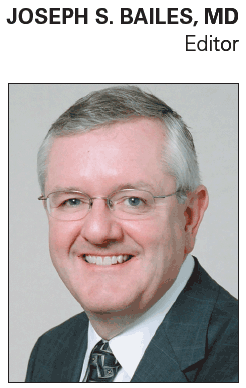Oral chemotherapy poses more challenges for cancer community
In 1998, FDA approved oral capecitabine (Xeloda) for metastatic colorectal cancer, ushering in a new era of oncology therapy. Since then, exponential growth in cancer drugs delivered orally has followed. According to an NCCN report, about 25% of the roughly 400 agents currently in the drug development pipeline are oral oncolytics.
Patients prefer self-administering oral agents in the comfort of their homes, but the increasing use of oral oncolytics comes with significant clinical and financial challenges.

In 1998, FDA approved oral capecitabine (Xeloda) for metastatic colorectal cancer, ushering in a new era of oncology therapy. Since then, exponential growth in cancer drugs delivered orally has followed. According to an NCCN report, about 25% of the roughly 400 agents currently in the drug development pipeline are oral oncolytics.
Oncologists have traditionally derived a substantial portion of their income from supplying and administering infusion-based chemotherapy. However, the trend toward oral cancer drugs disrupts the practice model, adding additional financial and clinical challenges to community practices that are struggling to cope with the strictures imposed by the enactment of MMA in 2003.
Nonadherence
One of the most important clinical challenges for oral drugs is the issue of nonadherence. “There are very strong data that show patient adherence with oral therapy drops significantly by six months,” according to Jeff Patton, MD, a partner in Tennessee Oncology, a multisite 60-physician oncology group.
Oncologists are also going to have to find ways to monitor their patients in order to prevent adverse events from drug interactions. Another issue is the misconception patients have that oral drugs are less toxic than their parenteral counterparts. Monitoring side effects, titrating doses, and prescribing the necessary supportive care agents to counteract toxicity increases the complexity of care for oncologists, but many of these services are hard to capture in billable codes.
Tough on the bottom line
“As oral therapy progresses to represent a larger percentage of the oncology market, oncologists will need to work with insurers to develop a more reasonable payment system to offset the significant expense incurred with administering oral therapy,” Dr. Patton said.
For a group that owns its pharmacy, the margins are extremely small for oral drugs, he explained.
“For those practices that do not own their own pharmacy or have dispensing capabilities, there is no revenue associated with the administration or toxicity monitoring for oral agents,” he added. Tennessee Oncology has its own pharmacy.
Patient education
Steven D’Amato, RPh, BCOP, a specialty pharmacist at the multisite Maine Center for Cancer Medicine & Blood Disorders, told Oncology News International that oral cancer therapies present a host of administrative issues, including an increasing number of prior authorizations and the documentation necessary for specialty pharmacies providing oral oncolytic agents.
“Patient education is essential when it comes to oral oncology drugs. Aside from the basic issue of adherence, there are a host of concerns that go along with patients who self-administer drugs. It’s not as simple as taking a pill, especially when you consider that many of these patients are elderly people who may have other comorbidities, are on multiple agents, and are dealing with complicated dosing regimens and schedules,” Mr. D’Amato explained.
An example of potential instructions for oral capecitabine is: Take with water within 30 minutes of a meal. If a dose is missed, do not take the drug when remembered and do not take a double dose. Stop taking capecitabine and contact the doctor if experiencing four or more bowel movements than usual per day, diarrhea at night, loss of appetite or large reduction in fluid intake, more than one vomiting episode in 24 hours, mouth sores, temperature greater than 100.5?F, or pain, redness, or swelling of hands or feet that prevents normal activity.
Some oncologists offer written material, video material, or group educational sessions, but ongoing patient education is uncompensated. The bottom line: Financially pressed community practices around the country need to be reimbursed for the nonbillable time that they spend on patient education.
Awareness on the Hill
Mr. D’Amato said that oncologists generally receive payment for administering parenteral chemotherapy, but similar reimbursement is not provided for administering oral chemotherapy. “The issue of compensation for oral chemotherapy is starting to get attention on Capitol Hill. There are several legislative initiatives in the works,” he said.
One bill (SB 166) would require healthcare service plan contracts, and health insurance policies that provide equivalent coverage for cancer chemotherapy treatment, to provide equivalent reimbursement for prescribed, orally administered anticancer medications on the same basis.
Although the availability of oral drugs has allowed many patients with advanced malignancies to live longer and better, the great expense of the new agents, along with an antiquated reimbursement system, threatens to undermine the already financially challenged community practice model.
How Supportive Care Methods Can Improve Oncology Outcomes
Experts discussed supportive care and why it should be integrated into standard oncology care.